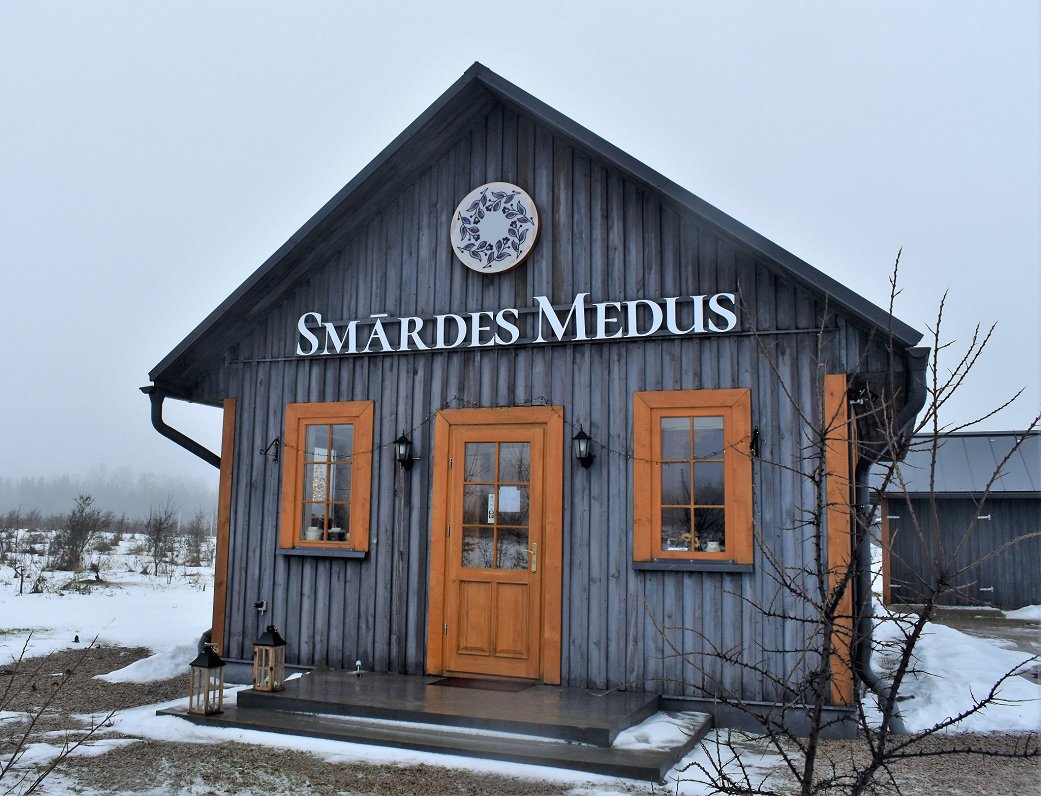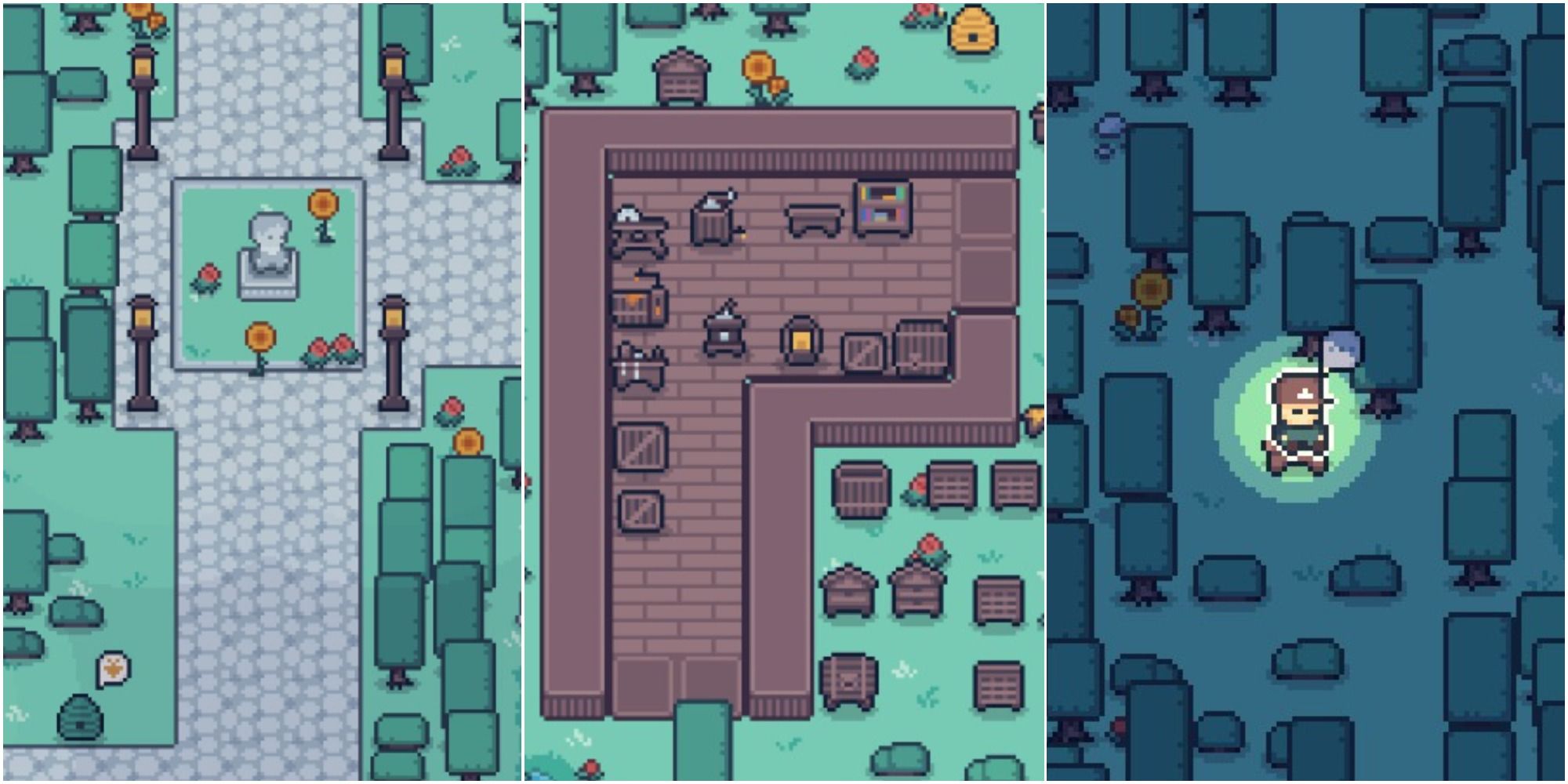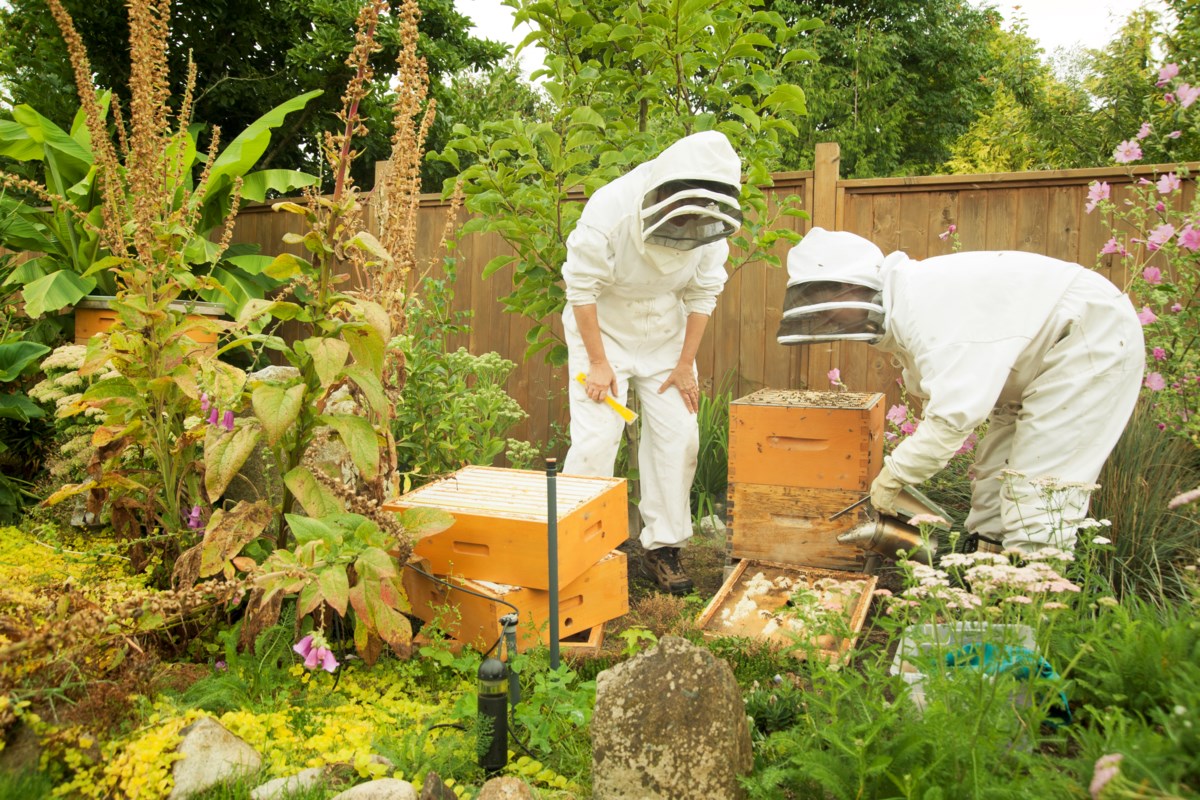Once upon a time there was Edgars and Krista Šneiders who led cosmopolitan lives, dividing their time between Riga and Tallinn running tourist businesses. But, yearning for a bucolic place to raise their three children, they moved in 2016 to a dilapidated old farmhouse on 3 hectares of land in Smārde, 50 km west of Riga.
Over the next few years, they established a comfortable home there and planted sea buckthorn bushes to make super healthy juice. A little later, Edgars attended courses organized by the Association of Latvian Beekeepers (winning the title of Best New Beekeeper in 2018), and he now devotes himself to harvesting honey, which is marketed under the brand “Smārdes medus »(Honey from Smārde).
Today the family manages 100 beehives, all handcrafted by Edgars. He collects delicious treats made from buckwheat, heather and the invasive Canadian goldenrod (he also experiments with honey obtained from giant hogweed, the black beast Latvian farmers). Pollen, propolis and beeswax products have also found enthusiastic customers.
Smarde honey
Photo: Philippe Birzulis
Smārde is surrounded on three sides by Kēmeri National Park, and Edgars makes the most of this pristine setting by treating every type of honey with respect. Unlike large commercial farms, he doesn’t just mix all the honey into a homogeneous mass at the end of the season.
“People often ask why we have such tasty honey,” says Edgars. “And I tell them it’s because right after the apple or lime trees have finished blooming, I go out and pick the honey. So each batch is different and delicious.
On the property, a traditional-style cabin houses a shop selling honey and sea buckthorn juice to visitors (open afternoons on weekends and other days by appointment). The family also distributes in several health food stores closer to Riga and delivers orders online to Ominva parcel distributors.
In the summer they organize corporate and children’s events, and with Smārde only a short drive from Jurmala, Edgars hopes to attract day trippers to the resort to learn about bees. It engagingly tells surprising facts about these complex creatures. Did you know they have five eyes? Or that worker bees have tiny spoons on the end of their long tongues to reach for the nectar inside the flowers? Or that the Girl Scout bees perform a dance indicating the precise angle of flight to reach the right pollen?
In winter, Edgars travels to Germany to earn money driving trucks, leaving Krista in charge of the store. During these trips, he noticed that most of the honey in Western Europe was runny and of poor quality (the only real honey being available in Russian grocery stores).
Edgars believes this is in part due to EU regulations, which for years have allowed low-grade Chinese honey mixed with a small amount of local honey to be sold as a European product. But he also believes that the more northern latitudes, including Latvia, simply have better conditions for obtaining honey. Here, the short flowering season prompts the plants to produce nectar more intensely in order to attract pollinators, making the honey tastier and more nutritious.

Smārde Honey Shop
Photo: Philippe Birzulis
According to Edgars, Latvia has greater forest cover and uses less pesticides than most other EU countries. Additionally, Latvian beehives are smaller and more extensive than industrial-scale beekeeping practiced elsewhere, such as the notorious plantations in California where trucks of bees are brought in to pollinate the almonds. This protects the Latvian bee colonies from the parasites and viruses that are decimating bee populations around the world.
Due to what Edgars considers petty and costly rules, “Smārdes medus” has not achieved organic certification. But even without a label, he insists his honey is healthier and more natural than the average store-bought product. And he thinks that Latvia should use all its advantages to market its products under the name “Nordic Honey”.
“Latvian honey is very environmentally friendly and competitive, but if we want to sell it, we have to educate customers about it,” he says.
Like bee colonies, the economic ecosystem needs to be carefully maintained. Covid-era bans on fairs, even those even held outdoors, have hurt manufacturers of family food products, and increasingly stringent tax laws aren’t helping either. Edgars says the government should be more pro-small business.
But that doesn’t spoil his passion for what he does.
“Small entrepreneurs are a tough bunch, and if you slam the door on us, we’ll find a way out the window,” says Edgars. “We never give up and we will always find a way to survive and make a living.”
Select the text and press Ctrl + Enter send a correction suggestion to the editor
Select the text and press Report an error send a correction suggestion to the editor
 Xoven Agricultor
Xoven Agricultor



